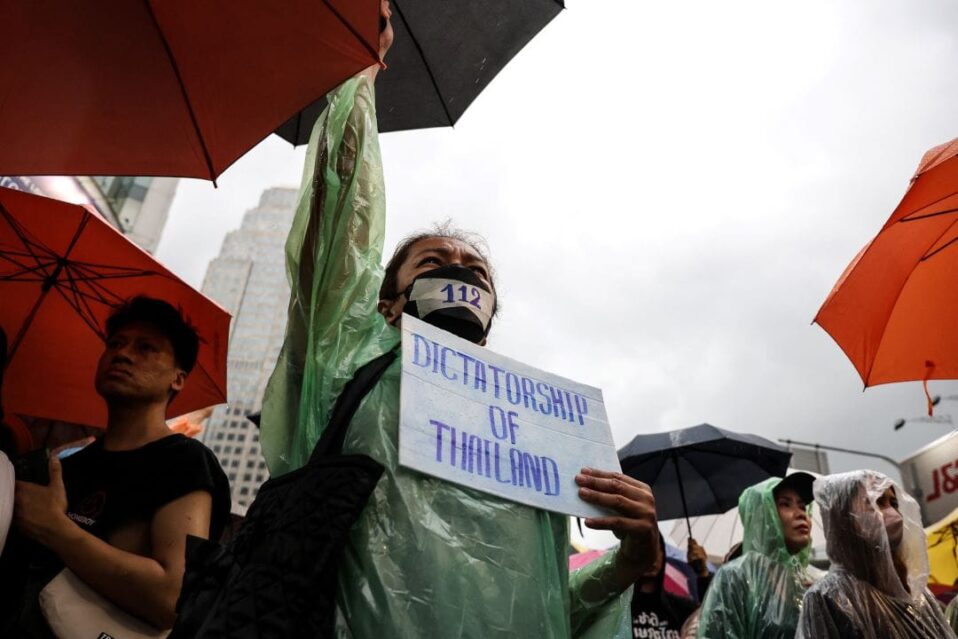“Why Have an Election?” “Respect my vote!” cried Thai protestors in response to the post-
election moves of the establishment, which tried to deny the Move Forward Party’s sweeping
victory in Thailand’s general election that took place this May. The Move Forward Party, headed
by Pita Limjaroenrat, is a progressive party that triumphed decisively by promising changes to
shake the foundation of the status quo. The current establishment had come to power after a coup
d’état in 2014, and has since continued a conservative, neo-royalist, and military rule of 9 years.
Although Move Forward had formed an 8-party coalition that represented over 70% of the voting
population after its landslide victory, Thailand still does not have its new government months
after the election. According to the 2017 constitution, a hand-picked senate of 250 members has
the power to choose the Prime Minister along with the elected parliament. This unelected body
has the interest and the power to maintain conservative rule, many of its members being ex-
military officers. By intentionally abstaining from the first round of voting, and condemning
Pita’s second round of voting as unconstitutional, the senate had maneuvered to postpone the
further vote that had been scheduled on July 27th, indefinitely.
Meanwhile, the 8-party coalition is strained by this postponement, and party coalitions are
shifting. The runner-up Pheu Thai Party, a long-time opposition party in the parliament and
former ally of the Move Forward Party is seeking to form a coalition with other conservative
parties in an attempt to secure its power. All of the conservative parties vowed to not join a
coalition with the Move Forward party, citing their proposal to amend the lèse-majesté law.
The party’s promise of amending the lèse-majesté law was at the heart of controversies for many
conservative neo-royalists. The law criminalizes criticisms of the royal family, making it
punishable by 3-15 years in prison, and the Move Forward Party proposed to soften such harsh
penalties. Moreover, a complaint had been accepted by the court that defined this proposal as
unconstitutional and treacherous for challenging the constitutional monarchy of Thailand. This
verdict could potentially result in the party’s resolution and a decade-ban on its executives for
holding office. In addition to this, the Move Forward Party had put forth 300 proposals aiming to
challenge the establishment, including subordinating the military to civilian leadership,
abolishing conscription, dismantling monopolies, and more. Among them, the most controversial
was the promise to amend the lèse-majesté law, which criminalizes criticisms of the royal family,
punishable by 3-15 years in prison. These proposals target the traditionalist and neo-royalist core
of the status quo, which had in the past maneuvered the system to conserve its power.
Nevertheless, this election and the manipulation that followed were able to stir up public hope
and anger like never before. The sound support for the Move Forward Party signaled
generational shifts toward a pro-democracy direction. A trend was also witnessed in Myanmar
and its protests not long ago. The center of the conflict is over the source of political legitimacy:
popular sovereignty versus traditional authority. With the people’s will for democratic
representation and the minority status quo’s slyness of political manipulation both increasing,
tensions are on the rise in Thailand which indicates potential for confrontation.
Written by Special Projects Intern, Yiting Zhang
References:


